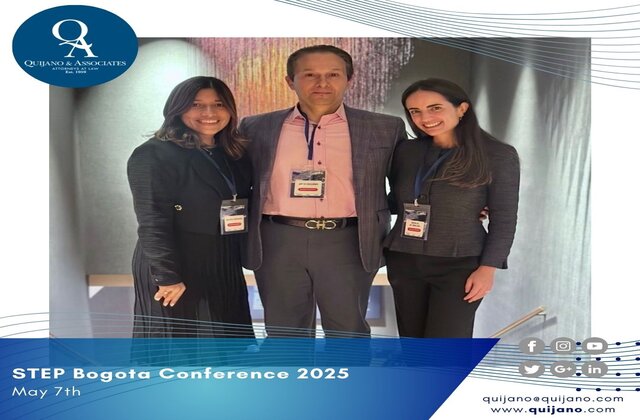Regulation of the Entrepreneurship Companies law in Panama

The Official Gazette has published Executive Decree No. 93 of August 20th, 2021 which regulates Law 186 of 2020 on the attractions for the establishment of Entrepreneurship Companies in the Republic of Panama, and which will enter into force and effect as of the 3rd of December 2021.
Executive Decree No. 93 regulates the following aspects and procedures for the registration of entrepreneurship companies at the Entrepreneurship One-Stop-scheme for the procedure at a Notary Public, the procedure at the Entrepreneurship One-Stop-scheme, the procedure at the Public Registry, the procedure at the Panama Tax Authority, the procedure at “Panama Emprende”, the procedure at the Superintendency of Non-Financial Regulated Subjects and the Business Registry.
BACKGROUNDS:
Law 186 of December 2020, which regulates Entrepreneurship Companies in the Republic of Panama, created a new legal entity called “Entrepreneurship company” to promote entrepreneurship in Panama. Among the attractions for those interested in entrepreneurship, this law grants several tax benefits, and at the same time, it simplifies complex legal procedures and excessive costs that previously existed.
The law defines entrepreneurship companies as “commercially operating companies with a social economic purpose aimed at the creation of innovative processes, products or services, or that represent creations of value or social and economic benefit locally, nationally or internationally”.
Main characteristics of the entrepreneurship companies, established by Law 186 of 2020:
– Regarding the partners, they can only be natural persons and there can be from 1 to 5 partners. A natural person is prohibited from being part of another existing entrepreneurship company, and a person who has been a partner of a dissolved limited liability entrepreneurship company, is prohibited from creating a new entrepreneurship company with the same activity. The partners shall only be liable for the obligations incurred by the company up to the amount of the participation they have contributed.
– They are not required to have a Registered Agent.
– There is a limit of one million dollars (US$ 1,000,000) of gross income per year. If the income of the entrepreneurship company exceeds this limit, it will have the obligation to formalize its transformation to another type of legal entity within six (6) months.
– The law establishes specific limitations as to the corporate purpose and the activities that may be carried out by the entrepreneurship company.
– The minimum share capital required is five hundred dollars (US$ 500.00).
– Every entrepreneurship company must have a Register of Shareholdings, Register of Minutes and a Register of Administrators; it must issue an electronic invoice for all the services rendered or goods sold, and must also keep a record of all the company’s income and expenses.
– The company’s financial statements must be submitted once a year through the AMPYME’s Virtual Entrepreneurship One-Stop-Scheme. (AMPYME stands for Micro, Small and Medium-Sized Enterprise Authority)
– During a period of two (2) years after the date of registration of the company in the Public Registry, it will have the following tax benefits:
- Exoneration from annual tax;
- Exemption from income tax;
- Exemption from the use of fiscal printers;
– Other benefits and incentives:
- Discount of up to fifty percent (50%) on import duties of supplies and raw materials for the creation of innovative products, services or processes;
- Consideration of donations up to a maximum amount of ten thousand dollars (US $ 10,000) per tax year as a deductible expense. (Does not apply if the person making the donation is part of the entrepreneurship company)
- It will enjoy the same incentives and benefits that the country provides to micro and small companies.
PROCEDURES REGULATED BY EXECUTIVE DECREE:
Entrepreneurship One-Stop-Scheme:
The Executive Decree orders the implementation of the Entrepreneurship One-Stop-Scheme at the Micro, Small and Medium-Sized Enterprise Authority, which will be located at its main office and will have a digital portal. The function of the Entrepreneurship One-Stop-Scheme will be to receive the standard statute and other documents to simplify the incorporation of entrepreneurship companies. These documents must be submitted in telematic or digital form by notaries, lawyers or partners interested in the incorporation of the entrepreneurship company. An electronic signature is required for the submission of the documents. Interested parties who do not have an electronic signature will have the option of submitting the documents physically at AMPYME’s regional offices. Those interested in incorporating an entrepreneurship company should check the availability of the name at the Public Registry, and when registering the company, they should add the acronym “SEP” to distinguish it from other types of companies.
Proceedings at a Notary Public:
At the time of requesting the preparation of the minutes of the Standard Statute, the interested parties must submit the following documents to the Notary Public:
- The minutes containing the Model Statute (prepared based on the model provided by AMPYME) in accordance with the provisions of Article 7 of Law 186 of 2020;
- Copy of the identity card or document of identity of all the subscribers, partners, administrators and legal representatives of the entrepreneurship company; and
- Copy of public utility bill showing the domicile of each of the subscribers, partners, administrators and legal representatives of the entrepreneurship company.
With the required information, the Notary will make the Public Deed of incorporation of the entrepreneurship company.
Proceedings at the Entrepreneurship One-Stop-Scheme:
The interested party will proceed to send to the Entrepreneurship One-Stop-Scheme, in digital or telematic form, the Public Deed prepared by the Notary Public, together with the proof of payment of the Qualification and Registration Fees, in addition to the documents required by law. If interested parties are unable to complete the digital process, a physical copy of the documentation can be filed at AMPYME’s regional offices, which will review and digitize the application and send it to the Entrepreneurship One-Stop-Scheme.
As soon as the officials of the Entrepreneurship One-Stop-Scheme have received the public deed containing the Standard Statute, they will proceed to verify whether the requirements of Law 186 of 2020, the Executive Decree and other applicable regulations have been met. If the public deed containing the Standard Statute is found to be in conformity, said officials will send the Standard Statute telematically to the Public Registry to initiate the registration process.
Proceedings at the Public Registry:
As soon as the public deed containing the Standard Articles of Incorporation has been received at the Public Registry, it will be forwarded to the Mercantile Section for its qualification and assignment of the mercantile folio. Once the registration of the public deed containing the Standard Articles of Incorporation has been completed, the Public Registry will electronically notify the Entrepreneurship One-Stop-Scheme that the company has been duly registered and will send the proof of its registration.
Proceedings at the Panama Tax Authority:
Once the entrepreneurship company has been incorporated, the application for registration at the Unique Taxpayer Registry (RUC) must be submitted to the E-TAX portal of the Panama Tax Authority.
Proceedings at Panama Emprende:
Panama Emprende is the computing system administered by the Ministry of Commerce and Industries of Panama, which automates the process of notifying the Government about the beginning of any commercial or industrial activity, so as not to demand any additional operating requirements from entrepreneurs. This will be the only system authorized to obtain an Operations Notice.
Once the unique taxpayer number “RUC” has been obtained, the Entrepreneurship One-Stop-Scheme will proceed to manage the Operations Notice of the entrepreneurship company, with the information provided by its legal representative in the standard statute. Once the information for the Operations Notice has been satisfactorily completed, the Entrepreneurship One-Stop-Scheme will inform its legal representative so that he/she may proceed to pay the corresponding one-time fee for the notice of operation. The notice of operation will be validated within the “PanamaEmprende” platform, must be printed and signed by the legal representative and must be kept at all times at the headquarters of the establishment of the entrepreneurship company.
Proceedings at the Superintendency of Non-Financial Regulated Entities:
Once the notice of operation has been enabled, the Entrepreneurship One-Stop-Scheme will proceed to send all the documentation of the new entrepreneurship company to the Superintendency of Non-Financial Regulated Entities, which will keep the provided information as strictly confidential.
Business Registration:
Once the entrepreneurship company is duly registered, the Entrepreneurship One-Stop-Scheme will automatically notify AMPYME’s Business Registration Section to proceed with the registration of the entrepreneurship company in the Business Registry. At the close of each fiscal period, all entrepreneurship companies are required to submit their financial statements and income tax returns to AMPYME Entrepreneurial Registry through the Entrepreneurship One-Stop-Scheme.
CONCLUSIONS:
Law 186 of 2020 has been approved and regulated to promote the culture of entrepreneurship in the Republic of Panama through the creation of direct and indirect incentives, in addition to the simplification of procedures for the incorporation of entrepreneurial companies through digital platforms and tools.
In addition to the benefits and incentives granted by law, the main difference between the other types of legal entities and the entrepreneurship companies is the power of the interested parties to virtually proceed with their incorporation, using Ampyme’s Entrepreneurship One-Stop-Scheme.
Through the regulation of Law 186 of 2020, the procedures to be followed for the incorporation of a entrepreneurship company are clearly established.




